-
White House considering gun-control measures beyond assault weapons ban
Sources in the White House say the administration is considering a broader and strategy on guns control in the wake of the Newton, Connecticut, mass shooting; the approach being considered will go farther than a ban on certain types of assault weapons; the Biden task force, which will submit its recommendations to President Obama in a few weeks, is leaning toward adoption of measures recommended by the law enforcement community, among them requiring universal background checks for firearm buyers, tracking the movement and sale of weapons through a national database, strengthening mental health checks, and stiffening penalties for carrying guns near schools or giving them to minors
-
-
U.S. troops arrive in Turkey to man missile defense batteries
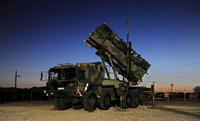
Turkey, a NATO member, has asked the organization for missile defense battaeries to protect it against a possible attack by Syria; the United States, Germany, and the Netherland deployed Patriot missile batteries along the Syrian-Turkish border, with their nationals manning the weapons; U.S. troops arrived in Turkey on Friday to supervise the U.S.-supplied missiles
-
-
U.S.-born cleric Anwar al-Awlaki purchased tickets for 9/11 terrorists: FBI documents

Within two weeks of the 9/11 terrorist attacks, FBI investigators had information that New Mexico-born jihadi cleric Anwar al-Awlaki had purchased air travel tickets for some of the hijackers; the information is contained in newly released, and heavily redacted, FBI documents; it appears that after the 9/11 attacks, the FBI, rather than arrest al-Awlaki, tried to work with him or track him for intelligence purposes, to see whether he would lead the agency to sleeping-cell terrorists still in the United States; Al-Awlaki was killed by a CIA drone attack in Yemen in September 2011
-
-
Newspaper hires armed guards to watch editorial headquarters
A newspaper in Rockland County, New York offered its readers a map on its Web site which showed the names and addresses of all gun permit holders in Rockland and Westchester counties; worried about an angry reaction to the map, the newspaper hired private security guards to watch over its West Nyack headquarters
-
-
Unmanned vessel for continuous tracking of enemy submarines
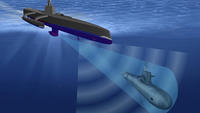
DARPA looking for an unmanned naval vessel that can seek out and track quiet diesel submarines, forcing them to return to base and thus protecting friendly ships from attack
-
-
Flexible electronics to make night vision more accurate, easier to use
For soldiers and first responders, having accurate, high-resolution imaging capabilities may mean the difference between success and failure; electrical and computer engineers set out to make night vision more accurate and easier for soldiers, pilots, and first responders to use
-
-
Flexible electronics to make night vision more accurate, easier to use
For soldiers and first responders, having accurate, high-resolution imaging capabilities may mean the difference between success and failure; electrical and computer engineers set out to make night vision more accurate and easier for soldiers, pilots, and first responders to use
-
-
Comparing boost-phase to non-boost-phase ballistic missile defense
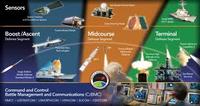
An expert panel set forth to provide an assessment of the feasibility, practicality, and affordability of U.S. boost-phase missile defense compared with that of the U.S. non-boost missile defense when countering short-, medium-, and intermediate-range ballistic missile threats
-
-
Less-lethal 12-gauge shotgun round for law enforcement unveiled
Innovative new round flattens, or “pancakes,” across a subject’s body on impact rather than keeping its shape as other rounds do
-
-
Privately funded gun buy-back programs proliferate
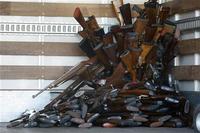
In the aftermath of the Connecticut mass shooting, private donors have donated hundreds of thousands of dollars to cities around the United States to fund gun buy-back programs; thousands of guns – and two rocket launchers – have been collected, but the impact on a gun-saturated society is likely to be small: this year alone the FBI has recorded 16.8 million instant background checks of gun buyers, 400,000 more than last year, which was a record year
-
-
Gun training for teachers gaining in popularity
Two hundred teachers in Utah are set to receive special firearms training — with a plastic gun — in order to carry concealed weapons in their classrooms in the future; in the aftermath of the mass shooting in the Sandy Hook Elementary School in Connecticut, gun training and gun safety classes for teachers are drawing attention
-
-
Broader background checks, denial criteria may help prevent mass-shooting catastrophes
Garen Wintemute, a leading authority on gun violence prevention and an emergency medicine physician at the University of California, Davis, believes broader criteria for background checks and denials on gun purchases can help prevent future firearm violence, including mass shooting catastrophes such as those that occurred at Sandy Hook, Aurora, Virginia Tech, and Columbine
-
-
Proliferation of license plate readers worry privacy advocates
Automated License Plate Recognition (ALPR) technology has taken off in recent years, and the police says it is the greatest innovation since fingerprints and DNA; the technology has changed the way police finds cars connected to crimes, but in the process it has upset many privacy advocates
-
-
Four-legged robotic mule now voice-controlled
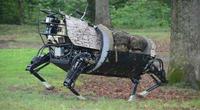
DARPA researchers demonstrated new advances in the Legged Squad Support System (LS3) four-legged robot’s control, stability, and maneuverability, including “Leader Follow” decision making, enhanced roll recovery, exact foot placement over rough terrain, the ability to maneuver in an urban environment, and verbal command capability
-
-
Louisiana parishes to encrypt police radio communication
First-responder agencies in Orleans, Jefferson, St. Bernard, and Plaquemines parishes in Louisiana will soon be encrypting all emergency radios, keeping emergency response chatter out of the ears of the public; the police says the encrypted communication is needed in order to keep criminals from gaining information on police by listening to scanners, but a police union and crime-prevention groups are worried that the encrypted system would prevent the media from monitoring police activity, and hobble neighborhood watch organizations from keeping their neighborhoods safe
-
More headlines
The long view
Tantalizing Method to Study Cyberdeterrence
Tantalus is unlike most war games because it is experimental instead of experiential — the immersive game differs by overlapping scientific rigor and quantitative assessment methods with the experimental sciences, and experimental war gaming provides insightful data for real-world cyberattacks.
Using Drone Swarms to Fight Forest Fires
Forest fires are becoming increasingly catastrophic across the world, accelerated by climate change. Researchers are using multiple swarms of drones to tackle natural disasters like forest fires.
Testing Cutting-Edge Counter-Drone Technology
Drones have many positive applications, bad actors can use them for nefarious purposes. Two recent field demonstrations brought government, academia, and industry together to evaluate innovative counter-unmanned aircraft systems.
European Arms Imports Nearly Double, U.S. and French Exports Rise, and Russian Exports Fall Sharply
States in Europe almost doubled their imports of major arms (+94 per cent) between 2014–18 and 2019–23. The United States increased its arms exports by 17 per cent between 2014–18 and 2019–23, while Russia’s arms exports halved. Russia was for the first time the third largest arms exporter, falling just behind France.
How Climate Change Will Affect Conflict and U.S. Military Operations
“People talk about climate change as a threat multiplier,” said Karen Sudkamp, an associate director of the Infrastructure, Immigration, and Security Operations Program within the RAND Homeland Security Research Division. “But at what point do we need to start talking about the threat multiplier actually becoming a significant threat all its own?”
The Tech Apocalypse Panic is Driven by AI Boosters, Military Tacticians, and Movies
From popular films like a War Games or The Terminator to a U.S. State Department-commissioned report on the security risk of weaponized AI, there has been a tremendous amount of hand wringing and nervousness about how so-called artificial intelligence might end up destroying the world. There is one easy way to avoid a lot of this and prevent a self-inflicted doomsday: don’t give computers the capability to launch devastating weapons.
